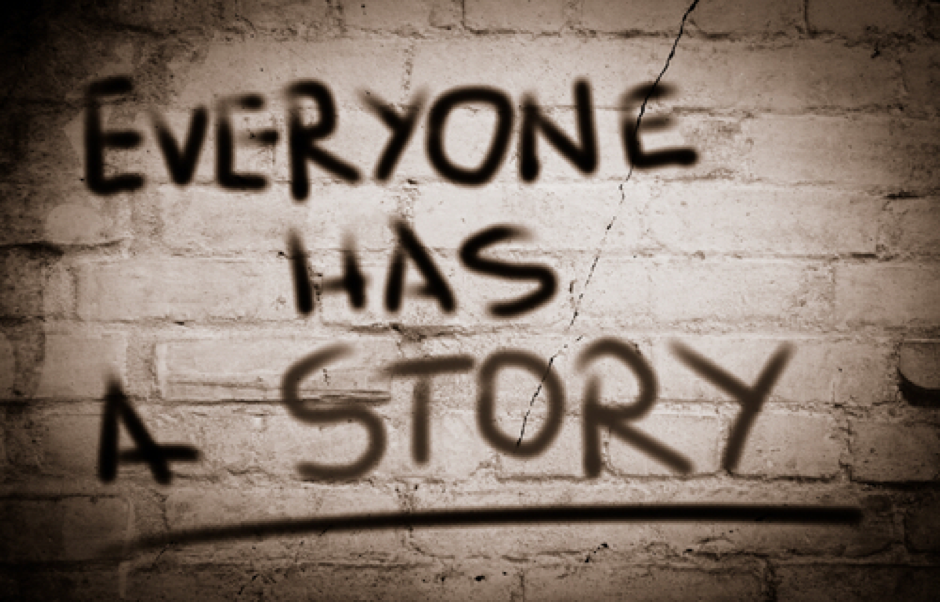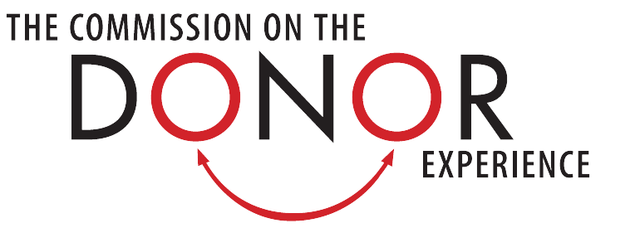CDE project 6 section 4.3: me the storyteller
- Written by
- Russell Benson
- Added
- March 01, 2017
Me, the storyteller
The power of storytelling, and why every fundraiser should practice telling emotional stories.
By Russell Benson.

Here’s a story about Sheila. That’s not her real name, I’ve changed it, to respect her right to privacy. But she is a real person all the same.
When I worked for a homeless charity, I was invited, alongside 5 other charities, to give a talk at a £4,500-a-year private girls primary school to their final year students - 10 and 11 year olds.
The teacher informed me that the children were going to select three charities to support for their summer fete. Being put in competition mode, I decided that it might help our chances if I took Sheila, a female client whom I had known from when she spoke at our carol concert.
We arrived on a warm day and I began speaking about the charity and the girls were politely fidgeting, but when I introduced Sheila to tell her story, the girls were totally engrossed. After she spoke and I asked if there were any questions, unsurprisingly, I wasn’t asked about our CEO pay or how much we spent on admin costs and after 10 minutes of questions, all of which were for Sheila, hands were still raised.
A few days later I got a package from the teacher with many letters addressed to Sheila and a note from the teacher telling me that the children unanimously voted for us and that our charity was the only one who brought a beneficiary to the school. The children had written letters to Sheila without being asked, writing how they had changed their opinion of homelessness and wishing her well. We also received £1,000 from the fete and in the 5 years since that talk, the school has given over £20,000. I'm convinced that without Sheila, we wouldn't have been selected as one of the three, never mind having that long-term support.
And Sheila was overjoyed that she was able to help the charity in this way. It’s humbling for me when she gives that same story as one of the reasons she was able to recover from the issues she had.
This was my eureka moment in fundraising and I learnt many lessons from that day that will stay with me throughout my career.
Storytelling is a powerful tool. Science tells us this. When we listen to, or read, a character driven story, our brains flood with oxytocin, which is the love hormone. I think safe to say our generosity is definitely up when we are feeling love.
I know, as fundraisers, we instinctively understand this, but do we try hard enough to get our beneficiaries to speak directly to our supporters? Are we satisfied that we put a case study on our materials and think that’s enough? Do we write these case studies in the third person and the only voice our beneficiary might get are some quotes in speech marks in the case study?
To begin, we need to find the stories. They are there to be found and of course we can seek them and ask our beneficiaries. But stories can also come to us… if we know where to look.
- Stephen Sutton blogged about his life with cancer and the support he was getting from teenage cancer trust and raised £5.5m for the charity.
- Zoella is a vlogger with millions of followers. She vlogged about her mental health issues. She is now a digital ambassador for Mind reaching new audiences.
- And who can forget Aylan Kurdi, the refugee child who was photographed on the beaches of Europe. His story changed perceptions of refugees and stimulated support for many charities working with refugees
And it doesn’t need to only be beneficiaries who speak on our behalf.
- We have our staff - I subscribe to Médecins Sans Frontières Whatsapp service and most of their messages are links to blogs written by the doctors on the frontline. These are the stories I am most engaged with.
- Our army of volunteers - during volunteer week, I read many stories about why volunteers are committed to our causes. But volunteer stories are for all year, not just for volunteers’ week!
- And we have our fundraisers, in fact we especially have our fundraisers, who have great stories. In my role, I see many JustGiving pages that have incredibly emotive and engaging content. These fundraisers are asking others to give and as all online platforms tell you, the personal story is key to a successful page.
- And we have our personal stories. Why do we work for the charity we do? Why do we work for charities at all? I used to talk to rotary clubs and because of the audience, I often spoke about my own prejudices against homelessness before i volunteered at Christmas and ended up working at a homeless charity.
- Public talks in schools and other groups are preferable for the best impact, but it's not always possible for charities to do this.
- Social media and other digital channels is an obvious option. And why not? It’s easy, cheap, can be interactive, shareable and gives the largest potential exposure. Options include live Q&A/webcasts, blog posts and other case study material (in first person!).
- As much as possible, use video and/or picture content. Let's use videos to bring the story to life. If pictures tell a thousand words, videos must tell a million!
- Let’s do this in as much of our stewardship journeys as possible. Do beneficiaries ever say thank you to fundraisers? Of course if you’re from an organisation that has traditionally had a sponsor-a-child or animal model, you’ve been doing this for years, but of course we now have technology to do this even better, more cost effectively and with a bigger reach.
As the old adage goes, people give to people and never has this been more successful than recent viral campaigns The ice bucket challenge raised nearly £7m for Motor Neurone Disease in three days and £8m was raised in six days for Cancer Research UK. But vitally, these campaigns were not driven by the charities, they just took advantage of the stories being shared and allowed people to take action on these stories.
And of course I talk about beneficiaries, staff, volunteers and fundraisers as different categories, but there are many overlaps amongst these and it’s important to recognise this and take advantage where possible. At the homeless charity, around 10 per cent of service staff are ex homeless themselves and their stories became even more powerful as they vividly highlight the success of the charity
We've chosen our stories, so next step is how to communicate?
So we have the story and the channels, so what’s the message?
This is where it can become complicated as we balance authenticity of the voice against controlling the message and having that charity ‘tone of voice.’
Of course, there are times we have to control the message to an extent, especially for big campaigns or adverts. But where we can, let the authentic voice shine. Remember, people give to people, or the cause, not the charity. We should not think of donors as giving or raising money for the charity to then spend on making the world better. Let’s remember that donors give money to make the world better - we just enable that to happen connecting those who want to change the world with those that can. Just this simple language change can connect the donor more to the cause. And if we can get this through beneficiaries talking directly to our donors, it’s an even better connection.
And language is important. Once, when I spoke alongside a homeless client, he listened to me and, as always, I asked for feedback. He told me everything was fine, but could we stop saying ‘homeless people’ and instead say ‘people who are homeless’ as he rightly wanted to be seen primarily as a person and homeless second.
Our beneficiaries are often faced by prejudices, stigma and stereotypes in society. By giving them a voice, they can breakdown these barriers. Recently, Julia Unwin, the CEO of Joseph Rowntree Foundation said we must… ‘enable the voice on those who live in poverty and to ensure that those voices are heard, and listened to, not met with the oscillating insults of pity and scorn.’
And we need to do this now. We live in a new world in many ways and we know public trust has been dented in the past 18 months and we also know that many people don’t trust experts anymore. But our beneficiaries are the authentic experts who people will listen to, so let’s get them heard.
We have the most incredible stories in our organisations that we can use to sell our cause. They rarely exist in any other type of organisations and if we can give our beneficiaries a true voice we can not only help ourselves to get income, help our beneficiaries feel valued and play our part in helping the wider public understand these issues we care so passionately about.
It's our job to go out there and each find our own Sheila and give him, or her, a platform to be heard.

















